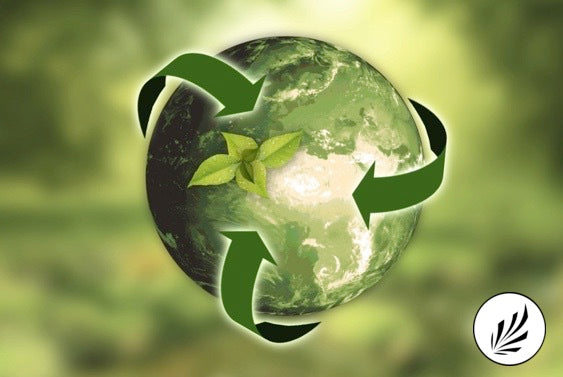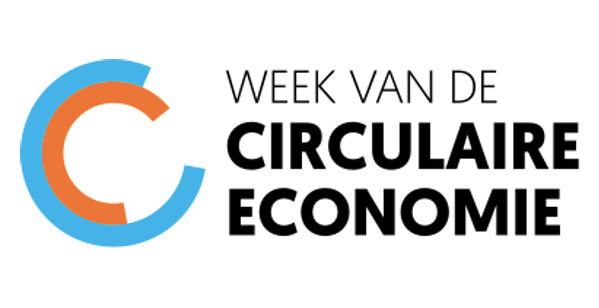
18 Easy Ways To Start Living A More Eco-Friendly Lifestyle.
If you are fed up with living a wasteful lifestyle and want to live a more eco-friendly lifestyle this new year, you might not know where to start. Starting something new can be stressful when you are unsure where to begin. But don’t worry, you have already completed the most difficult step – deciding to make a change! Focus on smaller changes you can make easily before you tackle the more difficult steps of your eco-friendly resolution. Here are some easy and small changes you can make in your everyday life to help live a more environmentally friendly lifestyle:
-
Reusable grocery bags
A really easy way to avoid waste and spending money is by getting yourself a reusable shopping bag. Not only are they better for the environment, but they're more durable and can often hold a lot more items than plastic bags. Be sure to wash your bag periodically to prevent bacteria buildup.
-
Beeswax wraps
If you take good care of it, beeswax wraps can last up to a year. Most options have been ethically sourced and made, meaning they're both good for you and the environment. Best of all, when they do come to the end of their life span, you can simply put them in your green bin as they naturally decompose. They might seem relatively expensive to purchase at first, but they're much better than plastic foil options — and look way better!
-
Forego meat 1 or 2 times per week
The simple change of abstaining from meat consumption once or twice per week is an easy change which has a huge impact. Meat production requires tons of land, chemicals, water and more. Choosing to go meatless just one or two days a week will help cut down on the resources used to produce meat for food. According to a United Nations study, “the livestock sector accounts for 9 percent of CO2 deriving from human-related activities, but produces a much larger share of even more harmful greenhouse gases. It generates 65 percent of human-related nitrous oxide, which has 296 times the Global Warming Potential (GWP) of CO2.”
-
Metal water bottles
If you haven't made this change already, another easy change to make at home is to use refillable metal water bottles. It is not only more sustainable, but the metal is less likely to leach chemicals into the liquid than plastic.'
-
Plant-based cleaning products
Let me guess, you keep an eye for that “organic” symbol at the grocery store, but have you ever thought about the thing you’re “sanitising” your cutting board with. Those bleaches and artificial scents and antibacterial compounds are going somewhere… and that includes the air, water, (…and our bodies). Try using vinegar, baking soda, and other natural cleaning solutions instead of conventional cleaners.
-
Wool dryer balls
While some green cleaning swaps are maybe a little more complicated, but there is no change easier than making the switch from dryer sheets to dryer balls. After all, why would you continually buy packs of fragranced sheets, when eco-friendly dryer balls can be used for countless washes.
-
Encourage public transportation for employees
Depending on the distance from the employee’s home to work, there are different possibilities to get to work. While carpooling is a very good option, taking the train or bus would also be a great option. Depending on your city’s biking infrastructure, you could even opt to ride a bicycle to work.

-
Only buy what you really need
How many times have you thrown away food that you meant to eat, but just didn’t? One very easy way to save money and offer a helping hand to the environment is to plan your meals, shop with a list, and only buy what you actually need. Make a commitment to consume what you purchase within a timeframe of a week for example, so you can stop throwing your money in the trash!
-
Try carpooling
Do you have a work colleague that lives close to you? Why not reduce on carbon emissions and gas costs by sharing a ride together? Carpooling is a great way to go green while also spending time with a colleague or friend at the same time--and it doesn’t have to stop at work or with a friend. Start a carpool for your kids school commute, or share a car with a few neighbours to go to the grocery store once per week.
-
Go paperless
How many paper bills do you get in the mail per week? All of that clutter is not only annoying to keep up with--it’s also very bad for the environment. Where possible, try to get online billing as much as possible to cut down on paper waste. Besides that, The world we live in today is much more reliant on computers and digital technology. It is easy to go a day without using a notebook or even a piece of paper. The less paper you use, the less paper needs to be produced and the more trees that get to fill our forests. By recycling one short ton (0.91 t) of paper you can save 17 mature trees, according to the EPA. If it is essential for you to use paper at your job or at school, you can still make a difference by recycling the paper you do use.
-
UNPLUG YOUR ELECTRONIC DEVICES
Even if you aren't using them, computers and other electronic devices still use power if they are plugged in. Unplug them whenever you aren't using them, it is a really easy way to save energy. You can also use a power strip that can easily be turned on or off to make it even more convenient.
-
Natural drinking straws
It is really easy to replace your plastic drinking straw for a natural solution, which comes from nature and ends up in nature.
-
HANG DRY CLOTHES
Speaking of conserving energy when doing laundry: don't use a dryer if you don't need to. Just hang your clothes outside, this will use no energy, except for your own. This also helps prevent too much wear and tear and shrinkage.
-
RECYCLE MORE
It might sound as the most obvious tip, but it is a very important one: Recycle! Recycling is a really impactful and easy way to be more sustainable. Make sure you recycle plastic, glass, and paper instead of just throwing all of it in the trash.
-
Buy Products That Are naturally compostable
All things come to an end. While you cannot always control whether or not the products that you dispose of will end up at a location where they will be recycled and reused, you can however purchase products that are made of non-synthetic ingredients and are naturally compostable
Naturally compostable products dissolve due to contact with bacteria and fungi. Meaning that if they get in contact with nature, they won’t cause any environmental harm, as they disappear due to natural processes.
-
Think About the Best Way to Travel
When it comes to being environmentally conscious, the method of transportation also has a major effect on the environment. There is a huge difference in how much CO2 a car and an airplane emit, for example. In fact, a single flight from New York City to Los Angeles produces 20% of the CO2 emissions that a car emits in a year.
Depending on the destination, it may be better to drive rather than to fly. In Europe, in particular, most big cities are very well-connected by train, which makes flying and even a car less and less necessary.
-
Green Key Certified Accommodation
When looking for accommodation abroad, keep in mind to look for places that are most sustainable in the activities that they do. Staying at Green Key certified accommodation is a good way of doing so.
In order to get certified as a Green Key accommodation, there are 13 criteria that need to be fulfilled. Being Green Key certified means that the accommodation respects local cultures and their traditions, takes care of the environment, treats its employees fair and equally, etcetera.
-
Donate Clothes
As children grow older, their clothes will surely have to be changed. Instead of throwing the clothes away, consider donating the clothes to people who could really use it!



Leave a comment
This site is protected by hCaptcha and the hCaptcha Privacy Policy and Terms of Service apply.